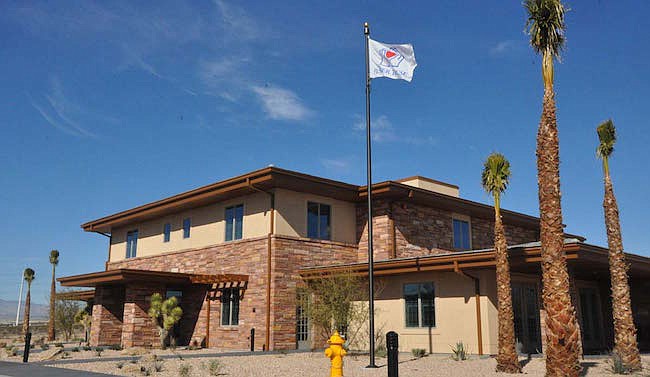- April 26, 2024
-
-
Loading

Loading

The Department of Veterans Affairs has come up with a new way to tell the difference between post-traumatic stress disorder (PTSD) and mild traumatic brain injury (TBI).
The difficulty with diagnosing one versus the other is that they both share some common symptoms, such as fatigue, memory loss, irritability, hypersensitivity and dizziness. A recent study used an electroencephalogram to measure the electrical activity in the brain. When researchers studied a large group of EEGs, patterns emerged; the activity was coming from different parts of the brain. While it doesn't pinpoint the exact place in the brain, it does indicate an overall location.
TBI, for example, showed low-frequency waves in the prefrontal and right temporal regions of the brain. PTSD, on the other hand, showed decreased low-frequency waves in the right temporoparietal region. (Low frequency also is indicated in other disorders, such as Alzheimer's disease.) By learning which area of the brain is affected, doctors can diagnose more accurately. This is key, especially with mild TBI that's been present a long time but hasn't responded to treatment.
Researchers looked at the records of 147 veterans and service members who'd been exposed to blasts. Of those, 115 had mild TBI, 40 had PTSD and 35 had both.
Despite the progress, this study isn't the complete answer. Researchers need to analyze more large groups to further pinpoint the brain locations. Still, being able to make a more accurate diagnosis based on an EEG goes a long way toward getting it right the first time and being able to offer treatment that's more likely to be accurate.
If you'd like to know more, read about the study at www.ncbi.nlm.nih.gov/pubmed/27238074, as well as www.research.va.gov/topics/ptsd.cfm and www.research.va.gov/topics/tbi.cfm.
Home away from home
When family members of a veteran getting medical treatment need to travel to be at his or her side, the expenses can be prohibitive, especially when you add in places to stay. To help ease that burden, the Department of Veterans Affairs is now adding 14 Fisher Houses across the country.
The Fisher House Foundation has built (and donated to the VA) 31 Fisher Houses and given 40 more to the Department of Defense. Each site contains eight to 21 suites, with a dining room, kitchen, library and living room, plus a resident manager on site. Fisher Houses are always located near medical centers and offer accommodation to families at no cost. In 2016, Fisher Houses saved 23,000 families more than $3 million when they came to stay at one of the 71 current locations. The foundation also provides Hotels for Heroes rooms in locations where there is no Fisher House.
The new locations will be in the Bronx and Montrose, N.Y.; New Orleans; Kansas City; Ann Arbor, Mich.; White River Junction, Vt.; Huntington, W.Va.; Columbia, S.C.; Columbia, Mo.; Perry Point, Md.; and Shreveport, La. Second locations will be created in Bay Pines, Fla.; Richmond, Va.; and San Antonio.
Veterans aren't the only ones who get help. Wounded, injured and ill service members who are about to get treatment at a VA medical center can get help with transportation. Hero Miles gives round-trip airfare to both the service members heading for treatment and their families, thanks to frequent flyer miles donated by the public. Check the Hero Miles link on the Fisher House website at fisherhouse.org. So far, Hero Miles has provided 63,000 tickets.
Check the website if you can donate money, frequent flyer miles or hotel points, or call 888-294-8560.
(c) 2016 King Features Synd., Inc.